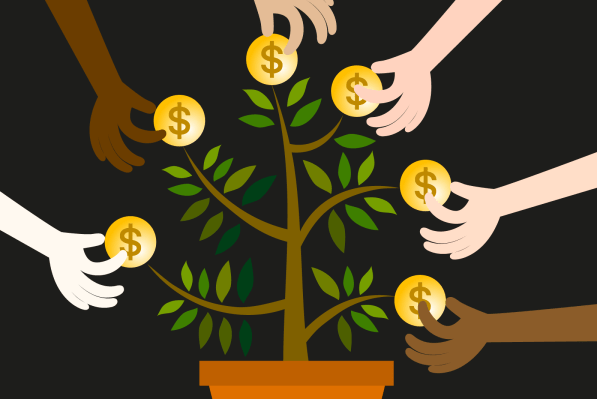For religious Muslims looking to get started with investing, the options are limited. Average Muslim investors can’t afford the kind of nuanced advice that a high end financial advisor can provide, but they can’t just throw money at a random fund that might not be Sharia-compliant either.
Wahed CEO Junaid Wahedna believes there’s a better way — and with a new $5 million seed round he intends to prove it.
“It’s just a market that a lot of people are scared to enter,” Wahedna said in an interview with TechCrunch. He wants to adapt the robo-advisor model of finance services like Betterment to serve Muslims looking to build a halal portfolio. Like other algorithmic and digital investment resources, Wahed cuts out the middle man and many of the associated fees, opening up investment opportunities for clients who aren’t starting with massive wealth. Wahed’s minimum investment is $500, making it friendly to first-time investors.
“Religious muslims have certain rules they have to abide by,” Wahedna explains. That includes prohibitions against making money from certain forms of interest as well as forbidding investments in alcohol and firearms. Those concerns can lead to some not very strategic investment choices. “What a lot of muslims do is either keep the money in cash or put it in real estate,” Wahedna noted.
He tells the cautionary tale of a Bangladeshi cab driver he met who illustrates the potential pitfalls for religious Muslim investors. The man had moved to the U.S. with $100,000 and asked his imam what he should do with it. “He didn’t want to keep it in the bank and he didn’t know what to do. The leader of the mosque told him Apple stock was Sharia compliant… so he put all of his savings in Apple stock.”
Worse yet, “people literally keep their money in cash and forgo the interest,” Wahedna said. “They lose out over time, just because of their religion. There shouldn’t be a cost of being Muslim.”
And given the global Muslim population, he doesn’t believe that Wahed is a niche product at all. During Wahed’s 1,000-plus user beta, the team received interest from more than 30 U.S. states and countries around the world. And because Islam’s ethical guidelines at times have so much overlap with other religions, he even had Christian leaders inquiring about the product.
As the company explains:
“The Wahed approach to ethical investing in the digital age utilizes a human review panel to screen certain stocks, commodities and other investment types that are not socially responsible or Shariah compliant, before automating algorithm-based investments. Clients will receive a recommended optimised and diversified portfolio based on their own risk tolerance. Using Wahed, American Muslims can now digitally automate long-term, halal investments into securities such as Sukuks and gold, while managing their halal portfolios at a low cost.”
With the $5 million in funding, Wahedna looks to scale up. “There’s a huge amount of products we can offer, from mortgages to debit cards,” he said. “It’s not just one product.” Along with pushing out its app in the next two or three months, the debit card idea is Wahed’s next major step. “People need somewhere to keep their cash, not just invest it,” Wahedna said.
Wahed’s seed round came from a mix of investors, including Afkar Holdings Managing Partner Khalid Al Jassim, former JPMorgan Chase Managing Director John Elkhair and former McKinsey & Company partner Nasr-Eddine Benaissa.
For now, Wahed will focus on serving religious Muslims in the U.S., a community with plenty of wealth to invest. “This is just a completely ignored market,” Wahedna said. “We want to really show we can compete with the best.”
